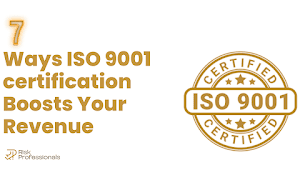Starting a career with heavy machinery needs a solid base in safety and skills. In material handling and warehousing, getting beginner forklift training is crucial. It’s not just wise it’s necessary. For newcomers, picking the right entry-level forklift operator certification opens doors to a career of skill and duty.
We aim to guide you to a forklift operator license that fits your goals and meets industry rules. At, certified safety experts our goal is to ensure entry-level operators can do their jobs well and focus on forklift safety training first.
An indoor training facility with a diverse group of beginners practicing on various types of forklifts, colorful cones set up as obstacles, safety equipment like helmets and vests scattered around, a large instructor demonstrating proper techniques, bright overhead lights illuminating the space, industrial environment with shelves full of supplies in the background.
With many training choices we show you which ones are best for beginners. They turn novices into safe and efficient workers.
What are the Basics of Forklift Certification
Exploring the world of forklift operation starts with understanding certification basics this certification is key for safety and better operation. We’ll cover what certification is why its needed and the laws in the United States.
What is Forklift Certification?
Forklift certification proves you know how to use a forklift safely. It teaches you about the machine, how to drive it, and follow safety rules. This includes handling loads, driving in different conditions and doing regular checks.
Why is Certification Necessary for Forklift Operators?
OSHA forklift certification keeps everyone safe and makes work more efficient. It’s a law to reduce risks when moving heavy stuff. It teaches operators how to handle dangers in various work places.
The Legal Requirements for Forklift Operation in the US
In the US, OSHA sets the rules for forklift use. All operators must get special training and pass a test. They must be 18 or older and finish a training program that meets OSHA standards.
Knowing these basics is important for all operators. It shows how crucial proper training and certification are. Following these rules helps keep everyone safe and work running smoothly.
Forklift Certification Options for Beginners
Starting as a forklift operator? Choosing the right certification is key. We provide insights into entry-level forklift courses for new operators. These programs are OSHA-compliant, focusing on safety and basic forklift skills.
Here are some common types of forklift certification options for beginners:
- Standard In-Person Entry-Level Forklift Courses: Great for those who like hands-on learning. They teach basic forklift mechanics, safety rules, and how to drive.
- Online Forklift Training for New Operators: Online training is flexible and often cheaper. It gives you the knowledge you need for safe operation.
- OSHA-Compliant Forklift Programs: These programs meet OSHA’s safety standards. They cover both theory and practice, focusing on safety and preventing hazards.
Choosing any of these forklift training options will prepare beginners for their roles. It’s important to pick a program that matches your learning style and meets regulatory standards.
Key Considerations When Choosing a Forklift Training Program
Choosing the right forklift operator certification is key to becoming a certified operator. We aim to help you find a program that meets your needs. This ensures you get a cost-effective certification with quality course material.
Accreditation and Recognition of the Program
First, check if the training provider is accredited for forklift training. This means their program follows industry standards and safety rules. Bodies like the Occupational Safety and Health Administration (OSHA) in the United States set these standards. This ensures your training is of high quality and meets national safety standards.
Training Program Curriculum and Content
The quality of the course material is very important. A good program should teach both theory and practical skills. It should cover:
- Operational techniques and the different types of forklifts
- Maintenance checks and basic troubleshooting
- Safety procedures and workplace safety laws
- Handling and moving loads effectively
Quality content from experienced instructors prepares you for certification and real-world challenges.
Costs and Location: Balancing Budget and Convenience
Cost and location are important when getting your forklift certification. Choose a program that’s affordable but doesn’t cut corners on quality. Also, consider the location:
- Is the training center easily accessible from your home or workplace?
- Are there flexible class schedules that suit your availability?
- Does the facility offer realistic environments for hands-on training?
These factors affect your learning experience and how well you’ll do in practical training.
The Role of On-Site Training in Forklift Certification
On-site training is key in forklift certification. It greatly improves the skills and safety of new operators. Trainees get real-world experience, which is vital for learning how to use forklifts.
Effective forklift training balances theory and practice. On-site training gives the hands-on experience needed. Here are some benefits:
- Practical Skills Development: Trainees learn to use forklifts in real settings, which is crucial.
- Immediate Feedback: Instructors give quick feedback, helping trainees improve fast.
- Customized Learning: Training fits the specific needs of the workplace and its challenges.
Combining hands-on training with real-world use boosts learning and confidence. This approach ensures trainees are fully prepared for the job. We focus on making sure our trainees meet and exceed industry standards.
Navigating Online vs. In-Person Forklift Training
When it comes to forklift certification, we must consider the pros and cons of online and in-person training. Both aim to teach you how to use a forklift safely and well. But they differ in how they teach, based on the method used.
Pros and Cons of Online Forklift Training
Online forklift courses are all about convenience and flexibility. You can learn at your own pace, anytime. This is great for those with busy lives or jobs. Yet, some say it misses the hands-on experience and real-time feedback of in-person training.
Technology has helped with simulations and interactive tools. But, the real feel of operating a forklift might be better in person.
Pros and Cons of In-Person Forklift Training
On the other hand, offers a hands-on experience. You get immediate feedback and personalized help. This makes learning faster and more tailored to your needs. But, it might not be as flexible with your schedule. You also have to think about travel to the training site.
How to Decide Which Training Method Suits You Best
To pick the best training method, think about how you learn, your schedule, and what your employer wants. Some people do well in person, while others prefer online. Hybrid training, which combines both, is also becoming popular.
Choose what fits your learning style, schedule, and needs. It should also prepare you well for the challenges of forklift operation.



































